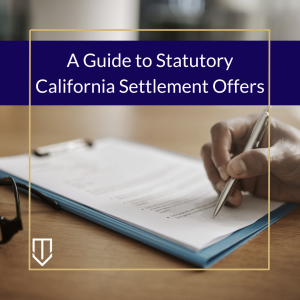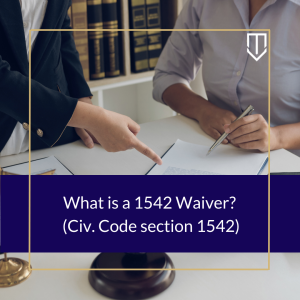 California Code of Civil Procedure section 998 encourages parties involved in legal disputes to settle prior to trial. According to this law, either party can present a written settlement offer to the other party up to ten days before the trial begins. (CCP § 998(b).)
California Code of Civil Procedure section 998 encourages parties involved in legal disputes to settle prior to trial. According to this law, either party can present a written settlement offer to the other party up to ten days before the trial begins. (CCP § 998(b).)
If the plaintiff declines a timely offer from the defendant and subsequently receives a judgment at trial that isn’t more favorable than the defendant’s offer, the plaintiff must “pay the defendant’s costs from the time of the offer.” (CCP § 998(c)(1).) Moreover, in many civil cases, the court may also require the plaintiff to pay a reasonable amount of the defendant’s expert witness expenses incurred after the offer was presented.
Likewise, if the defendant rejects the plaintiff’s timely offer and later gets a judgment at trial that isn’t more advantageous than what the plaintiff offered, the court has the authority to require the defendant to pay the plaintiff a reasonable portion of their costs related to expert witnesses incurred after the offer was made. (CCP § 998(d).)
 California Partition Law Blog
California Partition Law Blog


 California Code of Civil Procedure section 998 incentivizes parties in litigation to settle their disputes before trial. The statute provides that up to ten days before trial, either party may submit a written offer to the other to settle the case under specified terms. (CCP § 998(b).)
California Code of Civil Procedure section 998 incentivizes parties in litigation to settle their disputes before trial. The statute provides that up to ten days before trial, either party may submit a written offer to the other to settle the case under specified terms. (CCP § 998(b).) Civil Code section 1542 provides, “
Civil Code section 1542 provides, “